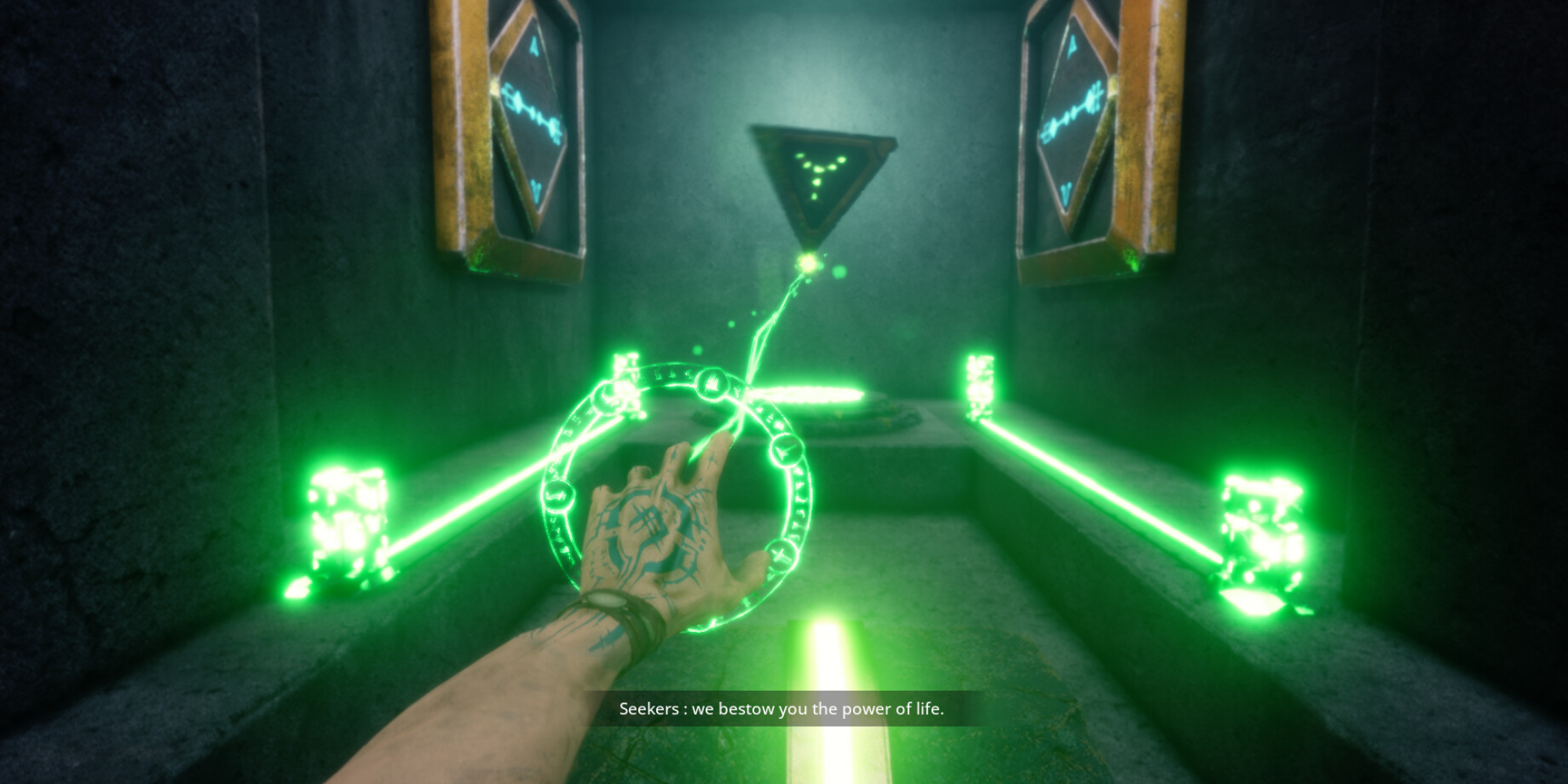Testament: The Order of High Human is a first-person fantasy action-RPG, developed by a team of 15 people under the name Fairyship. The preview build provided takes place in the opening hour-and-a-half of the game, naturally introducing the game’s world, mechanics, and story. It’s clear that Fairyship is shooting high with this title, as it looks beautiful and has a ton of interesting things going on, but it also falls short in ways that make the game feel more amateur than it should.
One of these ways is in the writing. The story setup is done well enough, though it’s a safe choice that fantasy fans will be all too familiar with. Testament is a revenge tale in which players take control of Aran, the immortal king of the High Humans who was betrayed by his brother. This betrayal resulted in Aran being stripped of his powers and the kingdom of Tessara being thrown into ruin, and it’s now up to Aran to restore his power, defeat his brother, and restore the kingdom. Testament does a good job at crafting and delivering these kinds of broader story elements but falls apart when it comes to dialogue and Aran’s narration.
Testament’s storytelling feels lacking due to its “tell-don’t-show” nature. The worst of it is during a temple sequence at the preview’s mid-point, where Aran has to use an orb he’s been carrying to activate a pedestal that awakens the temple. This sequence plays out over a cutscene and despite every action visibly happening and the player not having to do anything to progress this moment, Aran describes every movement he’s making as if the player is stuck on a puzzle or can’t pick up what’s happening. It feels like a minor and unnecessary moment at first, but then it keeps happening to the point where Aran will essentially repeat the same thoughts multiple times, such as the importance of the orb. This decision ends up giving the impression that Testament either doesn’t trust itself or the players to know what’s happening.
While Testament seems to lack confidence in its storytelling, it exudes it in its approach to gameplay. Testament’s approach centers around combining pieces of different genres not typically seen in games like this, which works surprisingly well in some ways and poorly in others. One of the things that works really well is Testament’s choice to have a significant focus on platforming and parkour elements. Given the game’s visual and mechanical similarity to games like The Elder Scrolls, embracing the vaulting and wall-running mechanics of games like Dying Light 2 was unexpected but effective. It adds a layer to puzzle solving and level navigation that is really fun without feeling forced or gimmicky.
The only place that Testament truly falters is, unfortunately, its combat: sword swings and magic feel underpowered and floaty; there is no block or parry system; some basic mechanics are locked behind skills; stealth gameplay is unreliable; and enemy A.I. is inconsistent. These issues become clear during the very…
2023-06-19 12:30:06
Article from screenrant.com
rnrn
